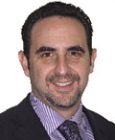Leadership
Rethinking Organizations with the Brain in Mind: Part 3, App
Leaders becoming caught in ‘Leadership Lockdown Syndrome'
Posted December 13, 2011
Jessica Payne Leaders becoming caught in ‘Leadership Lockdown Syndrome'
Jessica Payne
Leaders becoming caught in ‘Leadership Lockdown Syndrome'
The neural needs and resources of successful senior leaders was the topic of the first session of day three at the summit. The brain needs three things to function optimally, explained neuroscientists Jessica Payne (Notre Dame) and Stephen Thomas (Southampton School of Management) - moderate stress, good sleep and positive affect (positive mood).
While this sounds simple, its contrary to the pressures most executives experience, leading to 'Leadership Lockdown Syndrome', a phrase first coined by Jessica & Stephen for this summit. Leadership lockdown syndrome is when a leader's brain locks down (or locks up some might say) and cannot process incoming data efficiently, because of overly high allostatic load or ‘threat' levels. The problem occurs partly because of interaction between three experiences: high stress makes sleep and positive affect worse. Poor sleep makes stress and positive affect worse. And negative affect tends to make sleep and stress worse. So when people have high levels of all three experiences, the interaction can result in overly high stress experiences with significant cognitive impairment, impacting basic perception as well as judgement and decision-making. High levels of ongoing stress can also create permanent damage to the hippocampus, the brain region responsible for memory, with its high number of cortisol receptors.

Insufficient sleep also means we are not giving our brains time to integrate information in a meaningful way and are therefore operating at a sub optimal level, especially with regard to creativity. Sleep also plays a big role in regulating emotions, a crucial strength for any executive. Studies show that as little as a seven-minute nap allows regeneration of our creative brain circuits and improves mood.
Sara Mathew Priming for organizational change
Sara Mathew
Priming for organizational change
Across all organizations, leaders actions are watched closely; ‘everything is examined, becomes water cooler stories, and ultimately folklore' says Sara Mathew, CEO of Dun and Bradstreet.
She suggests that ongoing learning, being open to feedback, being self-aware and then modifying behaviour maybe just the ticket to setting the right context and expectations across the whole organization.
Deam Mobbs, David Rock, Sara Mathew
Dean Mobbs (University of Cambridge) agrees that small priming activities make a big difference. Studies show the brain is primed by seemingly inconsequential cues, from carrying a heavy clipboard to being given a warm beverage. The brains social circuitry means that having an ‘in group' including the entire organization can make for a motivated and rewarding success based culture. Different business units competing may lead to ‘out group' categorisation and a sense of pleasure at the ‘out groups' failure.
Other levers of change include office layout, organizational beliefs, language, and rituals that increase peoples feeling of status, certainty, autonomy, relatedness and fairness, such as Google's weekly town hall meeting where lots of information is shared across the business.
Real time measurement of brain functioning in leaders

Real time measurement of brain functioning in leaders
Al Ringleb (CIMBA) who runs the NeuroLeadership lab, is doing ground breaking work in the neuroscience of leadership space. At his business school in Northern Italy, Cimba, he sets up real time biofeedback systems, where future leaders get real time data about heart rate and skin conductance as they go through various leadership tasks. This data correlates to various brain functions such as overall threat or reward response. Students in an MBA program wear wireless heart rate monitors the size of small coins for long periods of time, getting to practice regulating their emotions under pressure. The fun part is that everyone in a class can see everyone else's data.
The data collected has given a number of clues to what makes leaders succeed. One finding shows that the level of emotional regulation may be the key to highly successful leaders, as close knit groups and teams mirror the heart rate of those taking the lead. More data on the study can be found in the Handbook of Leadership Theory and Practice, published by Harvard Business Press.
Also presenting was Marian Ruderman and Carol Connolly (CCL), talking about the field of leadership development and its evolution, and the need to shift to neuroscience, positive psychology and contemplative traditions as core foundations for the field.
Differential leadership
Differential leadership
This session was all about leadership from multiple angles, looking at leadership across different stages, ages, gender and culture, each presenter by a different researcher.
Paul MacDonald (Victoria Management School) looked at different stages of leadership. He outlined an initial stage of leadership, where individuals must become angry enough to stand up and act to change the status quo. Self-awareness is another stage, which is somewhat counter intuitive; we often consider leaders for their intellect or reasoning, however Paul proposed that it is emotional leadership that inspires us to follow someone. A third stage is a willingness to take risks. Paul suggests if you want to grow your leadership capability then the easiest way is to take more risks, ie go for a holiday in Kenya versus a safer version in Mexico. There will be more learning and growth to come from something more difficult then taking the safe route. Leaders need to step through these stages to be fully effective.
Jessica Payne (Notre Dame) spoke about leadership across different ages. Jessica noted that well managed stress is crucial to leadership at any age, and that without stress management our brains are far less effect not only in the moment, but in their ability to generate fresh neurons on an ongoing basis. Other influential ways to impact aging brain functions include exercising, sleeping well, having plentiful and/or meaningful social connections as well as a spiritual belief system.
Jacqui Grey spoke about leadership across genders. She noted that statistics on the gender gap are stark: of 190 world leaders currently only nine are women, in corporations between 15-18% of senior leaders are women, while the starting pipeline is 51% women, and only 3% of leadership positions in banking are held by women. Jacqui proposes that workplace systems are built by men for men, with the current rate of change unlikely to see equality before 40 years time. One of the culprits may be testosterone, giving men a false sense of confidence and an advantage over most women in the leadership domain.
Yiyuan Tang (Dalian) presented on leadership across cultures. He presented on how different cultures experience the world fundamentally differently, for example studies that show context may be more important then a central character from the Eastern perspective in a simple picture. These cultural differences impact how we think and interact with others and have implications in many areas including emotion, action, decision-making and social life.
Philip Zimbardo Increasing workplace heroism
Philip Zimbardo
Increasing workplace heroism
In the final session of the 2011 NeuroLeadership Summit, Philip Zimbardo, creator of the renowned ‘Stanford Prison Experiment,' (www.prisonexp.org) suggested we all have the capacity for evil behaviour-that is far greater than is widely understood - and an equal or greater capacity to be heroes.
The session was facilitated by Tim Tobin, global head of talent for Marriott, who had some fascinating comments about the need for heroic actions in the hotel industry.
"Heroism is learned, taught and modelled, not inborn," Zimbardo said. "It's everyday people doing extraordinary actions that can have a ripple effect that influences many others." He distinguishes between reactive, impulsive heroes-those given a sudden and unexpected opportunity for heroism-and proactive, reflective heroes, who have time to think about it before they become heroes. "Leaders need to be proactive heroes," he said. This was an inspiring and energizing close to a mind-expanding three days.
The 2013 NeuroLeadership Summit is going local with three days of events in three different locations. Click here for more information.




